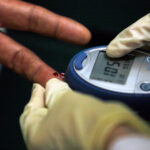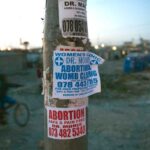A study has found that child-focused interventions have significantly reduced HIV-infection rates in children under the age of five.
New HIV infections in South African children under five years old have dropped by more than three quarters between 2003 and 2013, from 56 000 to 7 600. That’s according to a study conducted by the Institute for Health Metrics and Evaluation (IHME) at the University of Washington looking into the global burden of disease with a particular focus on HIV, tuberculosis (TB) and malaria.
Published in medical journal The Lancet on Tuesday, the study also found that the number of children who died due to Aids has decreased 10 fold over the past 10 years. The decrease in HIV infections and Aids-related deaths in this age group is likely a result of the country’s “expanded access to child-focused interventions” such as the prevention of mother-to-child transmission programmes, the study authors noted.
“The global investment in HIV treatment is saving lives at a rapid clip,” said Christopher Murray, IHME director and an author of the study in a press release. “But the quality of antiretroviral programs varies widely. In order to reduce HIV-related deaths even further, we need to learn from the best programmes and do away with the worst ones.”
However, the study also found that the fight against South Africa’s HIV epidemic is far from over: the country has the highest number of Aids-related deaths in the world. The South African National Aids Council estimates that there were 240 000 Aids-related deaths in the country in 2012 and the Human Sciences Research Council’s National HIV Prevalence, Incidence and Behaviour Survey released earlier this year found that South Africa had the highest number of new HIV infections with 400 000 new infections reported in 2012.
The Lancet study further found that in 2013 South Africa had a high tuberculosis prevalence rate of 965 cases per 100 000, much higher than the global average of 160 cases per 100 000.
Although TB deaths in South Africa decreased by 6.1% between 2000 and 2013, the study estimates that “20 000 South Africans who were not HIV-positive died from TB” in 2013.
Ina Skosana was a health reporter at Bhekisisa.





